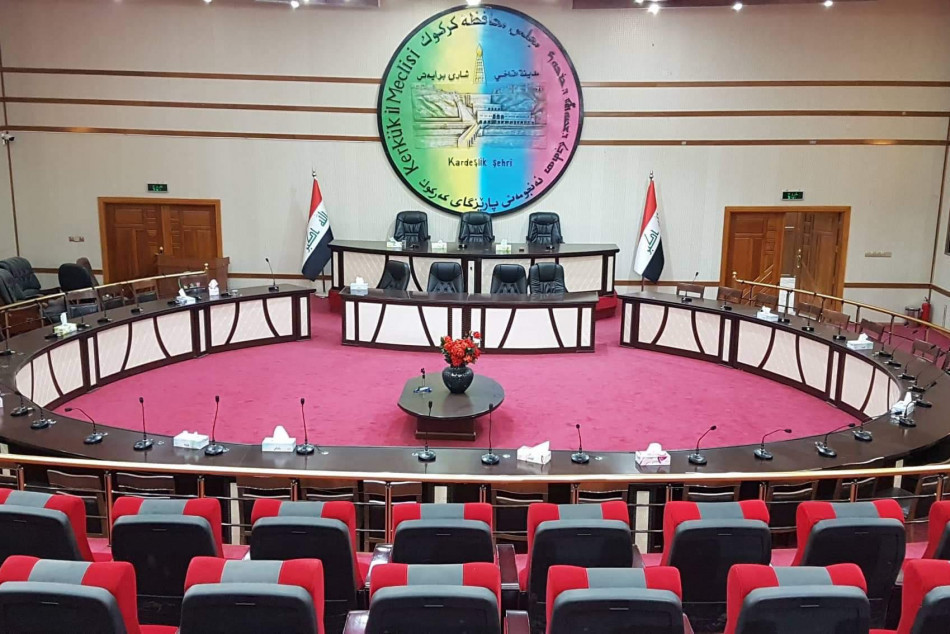Any citizen in Kirkuk, if not registered per the 1957 census or cannot prove that he is a resident of the province according to food coupons before 2003, will not be eligible to vote in the provincial council and parliamentary elections.
On March 27, 2023, the Iraqi parliament approved the third amendment to the law of elections for the House of Representatives, provincial and district councils in the presence of 218 out of 329 lawmakers, after weeks of debate and tense meetings.
After the amendment, only one law will apply to both parliamentary and provincial council elections in Iraq, the amended Law No. 12 of 2018.
The amendment makes several changes in both elections, especially in the provincial council elections, which have not been held since 2013, and Kirkuk participated in the process only once in 2005. Some of the changes relate to the number of provincial council seats, records of voters and voting of the internally displaced persons IDP.
Article 5 of the amendment electoral law states the Council of Ministers in coordination with the Election Commission will determine the date of the provincial council elections this year, which will not exceed December 20.
The Iraqi provincial councils were dissolved at the end of 2019 under the second amendment to the provincial council elections law, which was one of the demands of Tishreen (October 2019) protesters in Baghdad and several other provinces against corruption, left hundreds of civilians killed and thousands injured.
Elections in Kirkuk
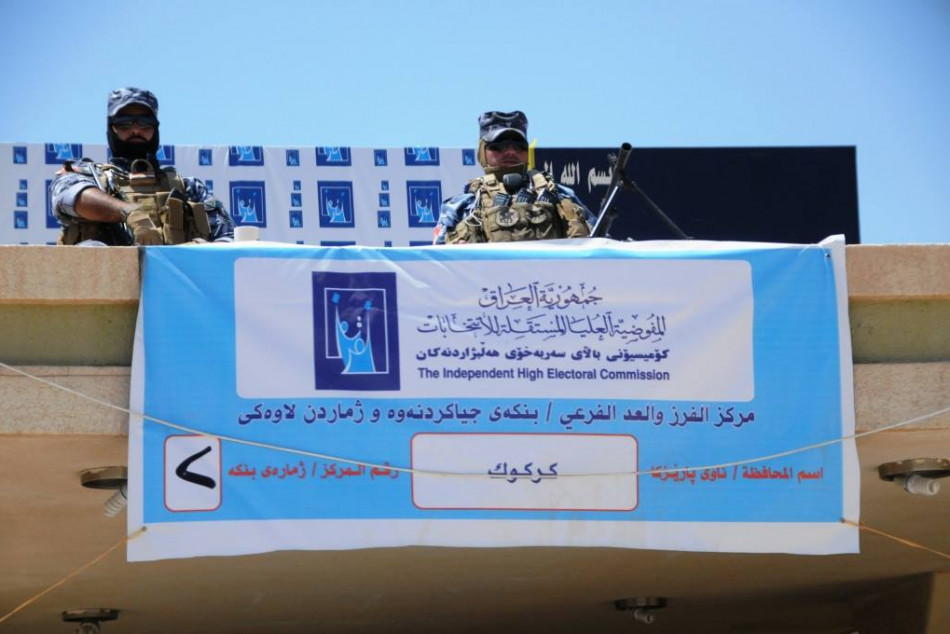
Article 35 of Law No. 12 of 2018 has been repealed and replaced by several other articles.
The first paragraph of Article 13 of the amendment dictates the Independent High Electoral Commission (IHEC) in coordination with the Ministries of Interior, Health, Justice, Commerce and Planning with representatives of all social communities in Kirkuk province in parliament will audit the voter registration on several grounds.
According to the first principle of the audit; The citizens registered in the 1957 census, except for the citizens of Zab and Sargaran sub-districts, will be included in the electoral register of Kirkuk province, which will be relied upon in the elections of the House of Representatives and provincial councils.
The second principle states citizens who have been deported and returned and have passed the procedures of the committee on Article 140 of the constitution for normalization of the disputed territories between Baghdad and Erbil, or will pass the procedures of the committee, their names will be included in the voter register.
The third principle of voter registration audit states; Citizens of Kirkuk province who can prove their residence in the province through food coupons (sales forms) before 2003 will be eligible to vote.
The second paragraph of Article 13 of the amendment says the results of the elections will not be the legal and administrative basis for determining the future of Kirkuk administration.
The entire province of Kirkuk is a disputed area between the two Iraqi federal governments and the Erbil-based Kurdistan Regional Government KRG, and the decision of its fate is within the framework of Article 140 of the constitution through three stages of normalization, census and referendum.
The results of the elections will not be the legal and administrative basis for determining the future of Kirkuk
Another article of the electoral law states that the provisions of Article 13 on Kirkuk are only for one round of parliamentary and provincial council elections.
According to the fourth and final paragraph of the new amendment, power is distributed according to fair representation to ensure the participation of the communities of the province regardless of the election results.
Previously, Article 35 of the amended law, which has now been repealed, required the provincial council to establish a procedure for the distribution of senior positions in Kirkuk, except for federal positions, taking into account the share of ethnic groups.
Since 2003, 32% of the posts in Kirkuk have been allocated to Kurds, Arabs and Turkmens, with 4% to Christians, based on a proposal by Jalal Talabani, the late Iraqi president and secretary general of the Patriotic Union of Kurdistan PUK, one of the leading Kurdish factions.
According to the repealed Article 35, the commission was previously obliged to audit and compare the voter registration between food ration coupons and civil status identification cards. Any one whose documents were not matching, would have been deleted from records of voters, unless passed procedures for compensation per article 140.
The Kurdish political parties were afraid about 15,000 Kurds whose food forms were in Kirkuk and whose civil status identification cards were from one of the provinces of the Kurdistan Region might lost their right to vote.
According to the ministerial program of the cabinet headed by Mohammed Shia Sudani, which took office last October, the parliament approved the holding of elections for the Kirkuk provincial council along with other Iraqi provinces, less than a year after the formation of the government.
IDP voting
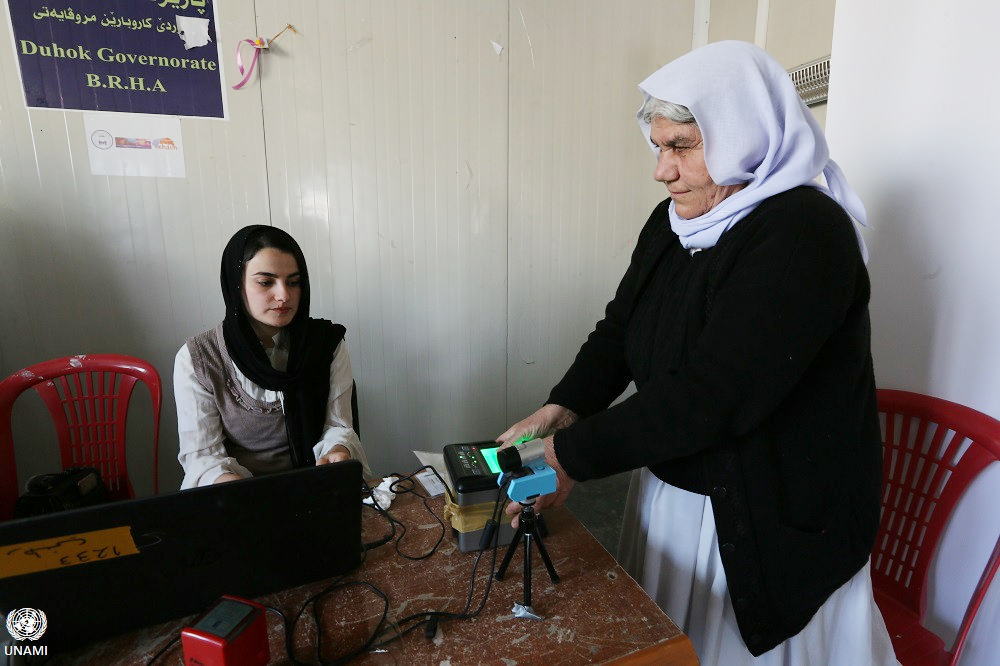
The third amendment to the parliamentary and provincial council elections law introduces a series of changes to the voting of IDPs as some live under tents inside camps and others outside the camps.
Article 3 defines an a migrant as any Iraqi forced to leave his hometown from December 9, 2013 to other part of the country or migrated abroad.
According to Article 16 of the amended law, Article 47 of Law No. 12 of 2018 will be repealed and replaced by several other provisions, including the IDP voter registration based on the latest official statistics of the Ministry of Migration and Refugees, and IDPs inside camps have the right to vote for their hometown electoral constituency.
The IDPs will vote according to their biometric cards. The commission is committed to opening polling stations in the camps and voting will be held on special voting day, which will be held 48 hours before the general election.
Biometric voting cards, in addition to fingerprints, have photographs of voter citizens.
Another provision of the amendment is that only IDP voters in Sinjar district, inside and outside the camp, can vote directly for their home constituency, but only through long-term biometric cards.
IDPs outside the camp must vote at their polling station in their hometowns
There are more than 600,000 IDP in the Iraqi Kurdistan Region IKR: 54% of them are from Nineveh, mostly Sunni Arab Muslims and Yazidis, some of whom live in 26 camps, while the rest, more than 490,000, are outside the camps, according to the KRG's Joint Crisis Coordination Center.
IDPs outside the camp must vote with biometric cards at the polling station in their hometown and the government is obliged to facilitate and transport them to the polling stations, as stated in the amendment.
Before the amendment, all IDP in and outside the camps had to return to their areas to vote, which risked losing the votes of thousands of people who could not return due to security instability and the long distance they have to cut. They were unable to vote due to lack of identity cards, security obstacles, lack of voting cards, distance from the commission stations and pressure by the political parties.
According to the third paragraph of Article 22 of the amendment, the commission must take back the voting cards from IDPs who participate in the special voting, give it back later through a receipt, must determine their names and take measures to prevent them from participating in the general voting.
In October 2021 elections, 120,120 IDP voters were eligible to vote, mainly in Duhok Northern Province, according to the IHEC.
The Iraqi federal government has closed all IDP camps, leaving only those in the Kurdistan Region.
Seats of the provincial council and parliament
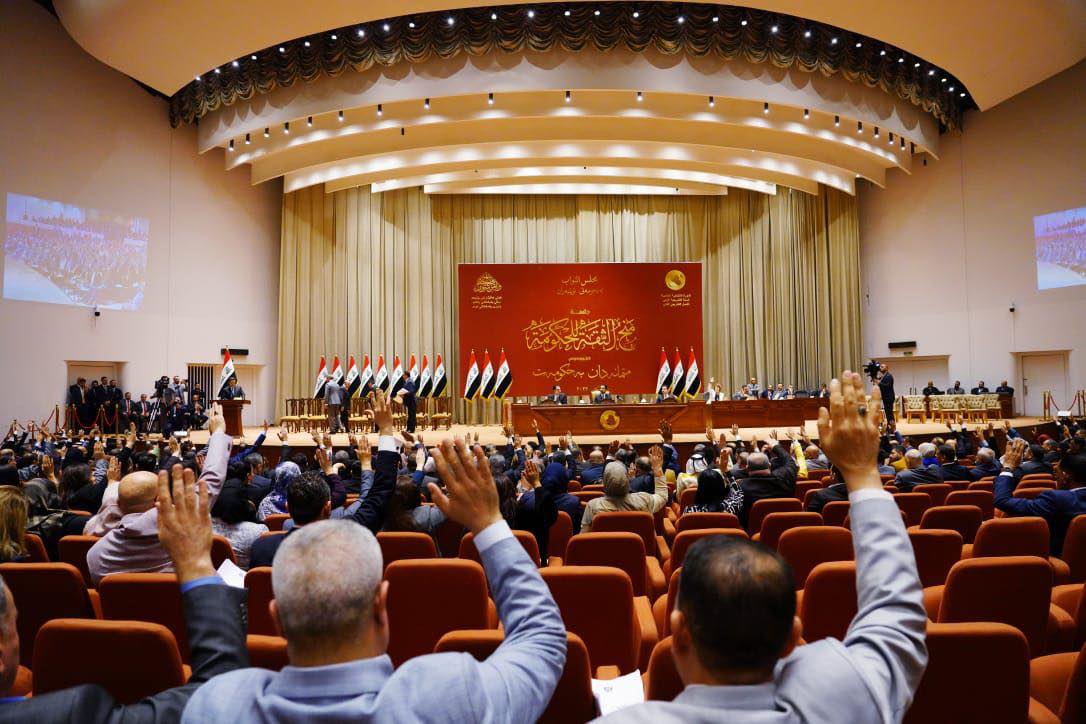
In the Third Amendment to the parliamentary and provincial council elections, the provincial council seats will be reduced to half, but the number of parliamentary seats and their distribution by province will remain the same.
According to the second paragraph of Article 9 of the new amendment; the provincial council consists of 12 seats, with another seat for every 200,000 people added when the province's population exceeds one million, according to 2019 statistics from the Ministry of Planning.
The division will give Kirkuk 16 seats, including one for the Christians, which is based on the population of more than 1.6 million people, while in the 2005 elections had 41 seats.
The number of seats in the Nineveh provincial council will be 29 for more than 3.8 million people, three of which are reserved for the Christian, Yazidi and Shabak communities.
Diyala and Salahuddin provinces, each with a population of more than 1.6 million, have 15 seats each.
No seats have been allocated for the Kakais, Baha'is and Armenians.
The Failis have two seats in Baghdad and Wasit, the Sabean Mandaeans have two seats in Baghdad and Maysan, the Yazidis have one seat in Nineveh, the Shabaks have one seat in Nineveh, and the Christians have one seat in Baghdad, Basra and Nineveh.
However, no seat has been allocated any Iraqi provincial council for the Kakais, Baha'is and Armenians.
The 329 seats in the Iraqi parliament, the distribution of provinces and minorities has not been changed, only decided to make the last two Christian seats in Duhok and Erbil, the whole Kurdistan Region into one constituency, for the quota Christian seats in Kirkuk, Nineveh and Baghdad Kurdistan will become one constituency.
For the seat of Sabean Mandaeans, the whole of Iraq is one constituency, but for the quota seats of Yazidis, Shabaks and Failis of the province where the seat is assigned, there will be one constituency.
In the list of candidates and then determining the seats in parliament and provincial councils, 25 percent must be for women.
Other electoral changes
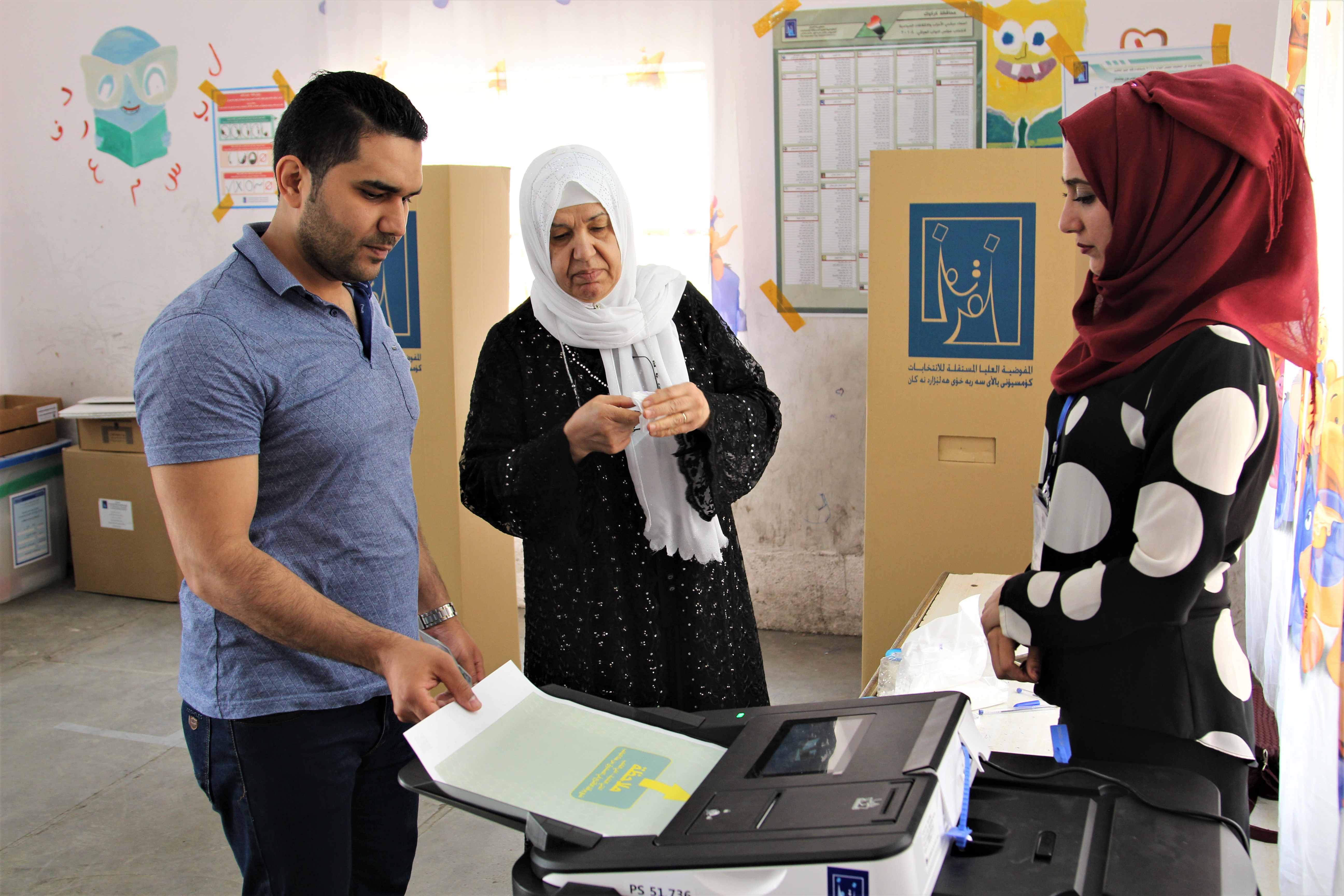
The third amendment to the parliamentary and provincial council elections law has made some changes about the candidates and the conduct of the process. Both processes must be held 45 days before the expiration of their legal deadlines, with the deadline set 90 days in advance.
Article 6 of the amendment increases the age of candidates from 28 to 30 years. They must have a bachelor or equivalent degree.
An election candidate must not have been convicted of a crime or defamation or a case of administrative and financial corruption under Articles (330, 333, 334, 335, 336, 338, 339 and 340) of the Iraqi Penal Code, even if he is pardoned.
Each province has been divided into one constituency, according to Article 12 of the amendment, which in the previous parliamentary elections, each province was divided into several constituencies.
The provincial council elections will be held on the same day throughout Iraq, meaning no province will be separated.
According to Article 19 of the amendment, no MP or member of the council or party or faction that won the election can transfer to another coalition or party or faction until after the formation of the government or the election of the governor and deputies.
The electoral commission will compare the fingerprints of both private and public votes within 10 days
Members of parliament and provincial councils must take the constitutional oath within one month after the first session, otherwise the candidate with the most votes will be replaced.
If an MP or councilor loses his seat for any reason, he shall be replaced by the next candidate according to the order of votes. If he is on an individual list, he shall be replaced by the candidate of a party or list.
If the vacancy is a woman's quota, a woman candidate should replace her.
The amendment adds several articles and provisions to the work of the commission, in order to prevent problems during the voting and eliminate suspicions of fraud, including the commission must compare the fingerprints of both private and public voting within 10 days.
Both electronic and manual counts will be relied upon. If the difference between the two counts does not reach 5% at any polling station, the results of the manual count will be relied upon. If the margin exceeds 5%, then the ballot boxes will be transferred to the central polling station for audit.
Any station that does not send the results within six hours after the end of the polling period will be subjected to the audit process.
Up to 5% of voters whose fingerprints are not recognized are eligible to vote at each polling station.
Article 24 of the amendment to the electoral law says in the absence of district councils, powers will be transferred to the provincial councils, and in the absence of provincial councils, the power to appoint the commissioner will be given to the governor, but the law makes no reference to the elections of the district council and sub-district councils which exited up to 2019.

